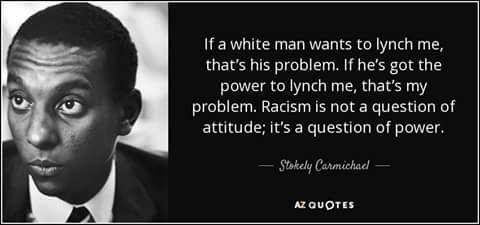A Tribute to Kwame Turé, by Prof. Tony Martin
Our dear brother, Kwame Turé/Stokely Carmichael, has now joined the ancestors. In life Bro. Kwame was a glorious embodiment of the best of our history. As a Caribbean man he demonstrated once again the boldness, daring, erudition and flair for world leadership that have often characterized the best amongst us.
Like Edward Wilmot Blyden, preeminent Pan-African intellectual of the late 19th century; like Henry Sylvester Williams, founder of the modern Pan-African movement; like Marcus Mosiah Garvey, the most impactful Pan-Africanist of all time; like C.L.R.James and George Padmore, preeminent Pan-African ideologists and activists, Kwame Turé inspired and energized freedom loving people everywhere.
As an African American and Pan-African revolutionary, Bro. Kwame once again demonstrated the indomitable spirit that has preserved our people over five hundred years, often in the face of frightful danger. Kwame was a general in the five hundred year war for freedom, justice and equality ushered in by the Atlantic slave trade. He picked up where Nat Turner, Martin Delany, Bishop Henry McNeal Turner and many others left off.
It was his fate to assume the mantle of leadership during one of the most intense periods of struggle. Much of the leadership of his cohort was killed in action or otherwise destroyed — Malcolm X, Martin Luther King, Jr., Medgar Evers, Huey Newton, Fred Hampton — the list is long and painful. Some who escaped death, such as Robert Williams and Assata Shakur, were forced into exile. No people should have to pay such a high price for freedom, but such unfortunately has been our lot in this era.
Kwame Turé somehow escaped death on the battlefield but he was jailed over thirty times for his human rights activity in the United States. He also suffered the appalling indignity of being banned in his own country, Trinidad and Tobago, for approximately twenty years, presumably at the behest of imperialist power.
Kwame Turé’s career followed closely those of some of the Pan-African leaders who preceded him. He was an elementary school student at Tranquillity Boys’ Intermediate School in Port of Spain, where Henry Sylvester Williams had taught in the 19th century. He emigrated to New York, as did Marcus Garvey. He eventually settled in West Africa, as did Edward Wilmot Blyden, George Padmore and W.E.B. DuBois.
Kwame Turé has a special personal significance for me since he was the only major African American Black Power figure who I can say I knew personally. We were contemporaries at Tranquillity School. I met him in London in 1967 and watched as he near-singlehandedly ushered in the Black Power era in England. We both attended the eleventh congress of Séku Turé’s Democratic Party of Guinea in Conakry in 1978. I had the privilege of introducing him as he opened the Emancipation Support Committee’s lecture series in Port of Spain in 1996. Over the years our paths crossed in Boston, Guyana and perhaps other places that I do not recall. I have taught his classic work, Black Power, in my classes for over two decades.
Kwame Turé was personable and gracious. Forceful and uncompromising in struggle, he was gentle and unassuming out of the limelight. The magnetism of his personality was a constant, however. Whether via the public platform or in private, those who experienced him knew that they were in the presence of a great historical figure.
May the ancestors welcome him and may his name always be revered where people aspire to freedom, justice and equality.
– Tony Martin (February 21, 1942 – 17 January 17, 2013)

